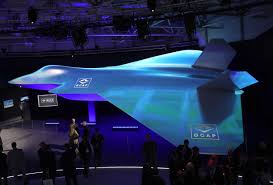Saudi Arabia Could Join Fighter Jet Program Once Key Conditions Are Met
DUBAI: Japan, the United Kingdom, and Italy are open to welcoming Saudi Arabia into their next-generation fighter jet initiative, but only after the project reaches a more advanced stage and key issues are resolved, according to a report by The Japan Times.
The Global Combat Air Program (GCAP), a joint venture between the three countries, aims to develop a sixth-generation fighter jet to replace Japan’s F-2 and the Eurofighter jets used by the UK and Italy. While expansion discussions are ongoing, officials say the program will remain limited to the current partners until at least the end of 2025.
This timeframe coincides with the expected signing of the first international contract between the program’s new intergovernmental body, the GCAP International Government Organization (GIGO), and the industry-led consortium Edgewing. The GIGO was formally launched this week in Reading, England.
Edgewing brings together top defense manufacturers including the UK’s BAE Systems, Italy’s Leonardo, and Japan’s Aircraft Industrial Enhancement Company. They are leading the design and development of the aircraft.
Sources say there is no formal objection to Saudi Arabia joining, but certain benchmarks must first be met. Riyadh has been encouraged to build up its aerospace sector, including acquiring and assembling Eurofighter Typhoons, to better prepare for full participation in GCAP.
Other nations are also reportedly interested in joining the program, including two unnamed European countries and one each from the Middle East and Asia. However, any additions would require unanimous agreement from Japan, the UK, and Italy.
With the conceptual phase complete, the GCAP aircraft is entering detailed design and development. A demonstrator flight is expected within two to three years, and the aircraft is scheduled to enter service by 2035.
Despite overall satisfaction with progress, tensions remain over technology sharing. Italy’s Defense Minister Guido Crosetto previously criticized the UK for not fully sharing sensitive technologies, a concern that remains unresolved.
For Japan, GCAP marks its first major defense project with partners outside the US. For all three nations, it represents a significant step toward future multilateral defense collaboration.

